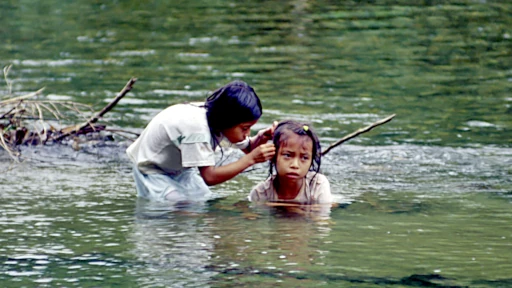Opinion Editorial Archive July, 2023: Jungle Proof Kids

Two search-and-rescue stories were briefly prominent in the mainstream news last month. At first glance, they have nothing in common. Deep in the Colombian Amazon Rainforest, four indigenous Huitoto children, aged from thirteen to one, were found alive after surviving on their own for forty days following a plane crash. Deep in the Atlantic Ocean, five people lost their life during an attempted dive to the wreckage of the RMS Titanic.
The survival story of Lesly Mucutuy, 13, and her siblings, Soleiny, 9, Tien Noriel, 5 and Cristin Neriman, 1, was hailed as a miracle by most of the mainstream media. Their claim is misinformed, and it is an example of ableism. The simple fact is that, like many indigenous peoples, the Huitoto still teach their Indigenous Knowledge (IK) to their children. It was precisely this IK that enabled Lesly to ensure their survival in an environment where we would have perished in a matter of days.
Nor is their story without precedent. Almost a hundred years ago, 14-year-old Molly Craig, a member of the indigenous Martu group of peoples, led the survival of herself and two younger family members for nine weeks in the desert of Western Australia. Her familiarity with her people's IK was also the key factor in their survival. There must be thousands of similar survival stories that have been forgotten or will never be known beyond indigenous oral history.
The tragedy of the Titan submersible reminds us how challenging and dangerous exploration can be. Yet, IK is itself the outcome of such exploration. Two months ago, I wrote about the importance of IK in the future of human exploration. Of course, IK would not have saved the Titan's crew last month. But we can speculate that, had intelligence evolved at oceanic depths, it might have.
This month's photo was taken close to the Colombian border in Ecuador. Although these girls are indigenous Quichua, they live in the same region where the Mucutuy children survived. Although there was no river near their crash site, it's easy to imagine Lesly caring for her younger siblings just as we see in this photo.
We continued to debate the role that Artificial Intelligence might play in society last month. Perhaps we should also begin debating the role that IK can play. A rescue mission that could be called miraculous, Apollo 13, was achieved using only technology. But in the rescue of the Huitoto children in Colombia, technology was of little use, and it had to be augmented by IK — with indigenous people taking the lead.
Nikon Peru last month began a photography advertising campaign in which Natural Intelligence is being promoted over Artificial Intelligence. Similarly, if we begin promoting IK alongside our own narrow view of knowledge, we might start solving some of our most pressing problems.
If you enjoyed reading this month's opinion editorial, please consider supporting independent, advertising-free journalism by buying us a coffee to help us cover the cost of hosting our web site. Please click on the link or scan the QR code. Thanks!

